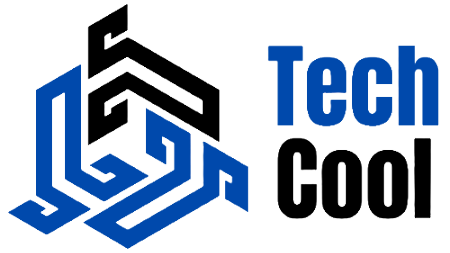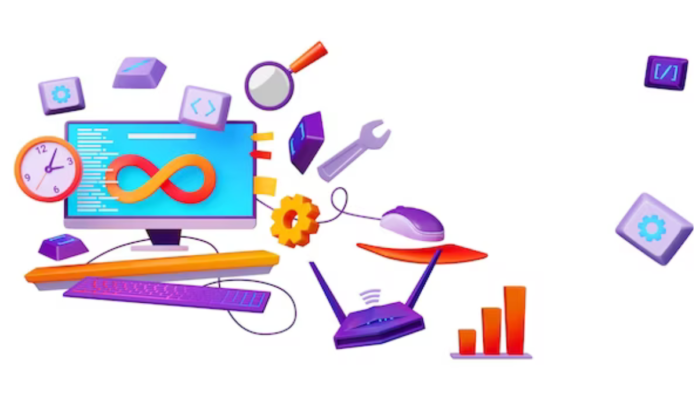In an ever-evolving landscape of technology, the emergence of next-generation tools is shaping the future of various industries and redefining the way we work, communicate, and interact with the world. From advanced AI algorithms to immersive virtual reality experiences, next-gen tech tools are pushing the boundaries of what’s possible and driving transformative change across sectors. In this comprehensive guide, we delve into the latest developments in next-gen tech tools, exploring their features, applications, and potential impact on the way we live and work.
1. Introduction to Next-Gen Tech Tools
Next-generation tech tools encompass a wide range of innovative technologies and solutions that leverage cutting-edge advancements in areas such as artificial intelligence, augmented reality, blockchain, and quantum computing. These tools are designed to address complex challenges, improve efficiency, and unlock new opportunities for businesses, organizations, and individuals seeking to stay ahead in a rapidly evolving digital landscape.
2. Key Features of Next-Gen Tech Tools
Next-gen tech tools offer a multitude of features and capabilities that set them apart from traditional solutions. Some key features include:
- AI-Powered Automation: Next-gen tools leverage artificial intelligence and machine learning algorithms to automate repetitive tasks, analyze data, and make intelligent decisions, enabling businesses to increase productivity and efficiency.
- Immersive Experiences: Technologies such as virtual reality (VR) and augmented reality (AR) provide immersive experiences that enhance training, education, and entertainment, allowing users to interact with digital content in a more engaging and realistic manner.
- Blockchain Security: Blockchain technology offers decentralized and tamper-proof storage of data and transactions, ensuring security, transparency, and trust in various applications, including cryptocurrency, supply chain management, and digital identity verification.
- Quantum Computing Power: Quantum computing enables unprecedented computational power and speed, allowing for complex simulations, optimization problems, and cryptography applications that were previously infeasible with classical computing.
3. Applications of Next-Gen Tech Tools
Next-gen tech tools are applied across a wide range of industries and use cases, including:
- Healthcare: AI-powered diagnostic tools, virtual reality simulations for medical training, and blockchain-based electronic health records enhance patient care, research, and medical education.
- Finance: Blockchain technology facilitates secure and transparent transactions, smart contracts, and decentralized finance (DeFi) applications, transforming the way financial services are delivered and accessed.
- Manufacturing: AI-driven predictive maintenance, augmented reality-assisted assembly, and blockchain-enabled supply chain tracking improve efficiency, quality control, and traceability in manufacturing operations.
- Education: Virtual reality field trips, AI-powered tutoring systems, and blockchain-based credentialing systems revolutionize teaching and learning experiences, making education more accessible and engaging.
4. Benefits of Next-Gen Tech Tools
Next-gen tech tools offer numerous benefits for businesses, organizations, and individuals seeking to harness the power of innovation and drive digital transformation. Some key benefits include:
- Increased Efficiency: Automation and optimization capabilities provided by next-gen tech tools enable businesses to streamline processes, reduce costs, and improve productivity.
- Enhanced User Experience: Immersive experiences and intuitive interfaces offered by next-gen tools enhance user engagement and satisfaction, leading to better outcomes and higher customer retention.
- Improved Security: Blockchain technology provides a secure and tamper-proof platform for data storage and transactions, reducing the risk of fraud, hacking, and unauthorized access.
- Accelerated Innovation: Next-gen tech tools fuel innovation by providing powerful capabilities for research, development, and experimentation, driving breakthroughs in science, technology, and business.
5. Challenges and Considerations
While next-gen tech tools offer significant promise, they also present challenges and considerations that must be addressed to realize their full potential. Some key challenges include:
- Complexity: Next-gen tech tools often require specialized knowledge and expertise to implement and manage effectively, posing challenges for organizations with limited resources or technical capabilities.
- Ethical and Regulatory Issues: AI algorithms, virtual reality experiences, and blockchain applications raise ethical and regulatory concerns related to privacy, bias, transparency, and accountability, requiring careful consideration and oversight.
- Interoperability: Integrating next-gen tech tools with existing systems and infrastructure can be challenging due to compatibility issues, data silos, and interoperability standards, necessitating careful planning and investment in integration solutions.
FAQs (Frequently Asked Questions)
Q: What industries stand to benefit the most from next-gen tech tools?
A: Next-gen tech tools have applications across various industries, but sectors such as healthcare, finance, manufacturing, and education are particularly well-positioned to benefit from innovations in AI, blockchain, virtual reality, and quantum computing.
Q: How can businesses stay updated on the latest developments in next-gen tech tools?
A: Businesses can stay updated on the latest developments in next-gen tech tools by following industry news and trends, attending conferences and seminars, participating in professional networks, and collaborating with technology partners and experts.
Q: What are some potential risks associated with adopting next-gen tech tools?
A: Some potential risks associated with adopting next-gen tech tools include security vulnerabilities, privacy breaches, unintended consequences of AI algorithms, regulatory compliance issues, and technological obsolescence.
Conclusion
Next-gen tech tools represent a new frontier of innovation, offering powerful capabilities and transformative potential for businesses, organizations, and individuals seeking to thrive in a rapidly evolving digital landscape. From AI-driven automation to immersive virtual reality experiences and blockchain-enabled transactions, these technologies are reshaping industries, driving efficiencies, and unlocking new opportunities for growth and development. As the adoption of next-gen tech tools continues to accelerate, stakeholders must navigate challenges, address ethical considerations, and leverage the full potential of innovation to create a brighter, more sustainable future for all.


